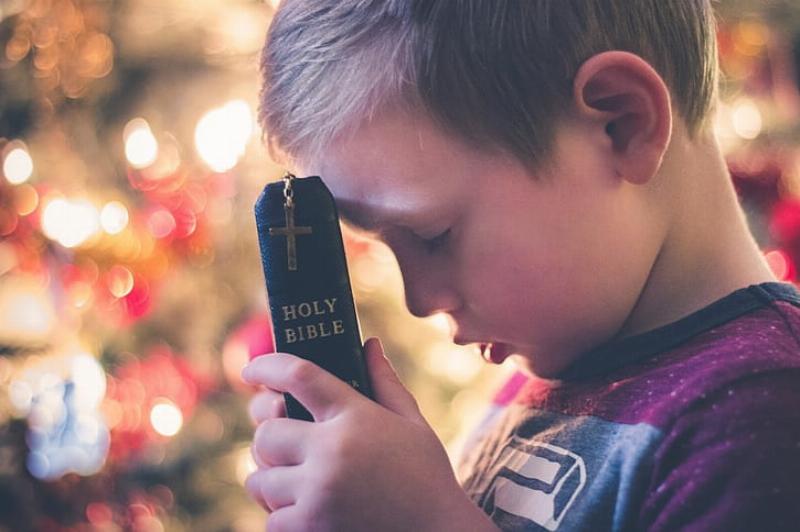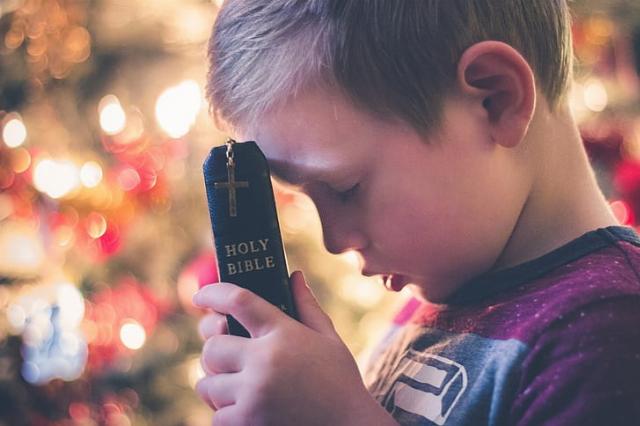


In the 1960s, the U.S. Supreme Court, for the first time, held in two cases that certain public-school prayer and Bible reading programs violated the Constitution’s Establishment Clause. The Court failed to count the cost.
Religious faith provides meaning, solace, and a sense of responsibility. When religion goes out the window, a lot goes with it. Since the school prayer cases came down, public schools became hostile to religion, and an increasingly faithless America became less patriotic and community-minded, more materialistic, lonely, depressed, suicidal and senselessly violent. Even those who are not especially religious are impacted by these negative trends.
We don’t have to live this way.
The free exercise clause of the First Amendment guarantees students’ and educators’ rights to exercise their religion on their own initiative. That right doesn’t stop at the schoolhouse door. At the founding, the First Amendment’s establishment clause meant only that Congress could not establish a national religion. But few educators or students understand this. Misled by revisionist history, they think the Establishment Clause means “separation of church and state -- so, no religion in schools.” Indeed, school administrators are so fearful of Establishment Clause lawsuits that they often violate students’ and educators’ free exercise rights.
Characteristically, Texas is not buying it and not backing down. Senate Bill (SB) 11, sponsored by Senator Mayes Middleton, enables school boards to vote on whether to allow students time to pray and read religious texts before the school day begins. SB 11 provides guidelines so that schools can implement the policy in the right way.
Done correctly, as in SB 11, schools can constitutionally give students the opportunity to pray or read religious texts in school.
Opponents of SB 11 will cynically claim, “Your kids can pray or read scripture on their own time. Or you can send them to private school.” Certainly, families should have prayer and Bible reading at home. But why only at home? For overscheduled families, there’s precious little of “your own time” left. Students spend seven hours per day, 180 days per year, in school. A growing number of states, including Texas, even allow and or encourage school districts to operate year-round schools. American teens spend 4.8 hours per day on social media. And most parents can’t afford private schools. No wonder Americans’ religious engagement has declined since schools became hostile to religion.
Religion-free public schools are un-American, or at least not aligned with the history and tradition of the United States. Harvard law professor Justin Driver notes that public education was unmistakably religious for most of our history. “In 1869, the National Teacher’s Association expressed the dominant understanding that ‘the Bible should [be]... devotionally read, and its precepts inculcated, in all the common schools of the land.’ Such practices persisted well into the twentieth century,” says Driver. As a matter of accurate history, school prayer and Bible reading posed no constitutional problem for more than 170 years. The school prayer cases’ reading of the Establishment Clause is revisionist history.
But the tide is turning. In Kennedy v. Bremerton School District (2022), for the first time in decades, the Supreme Court committed itself to a historically accurate application of the Establishment Clause. That’s the first key reason SB 11 is constitutional.
The second reason is that the school prayer and religious text reading involved in SB 11 are far different than the practices at issue in the 1960s school prayer cases. SB 11 ensures prayers and religious readings won’t be broadcast over the school’s public address system or in the presence of any student without parental consent. These key factual differences and the Kennedy ruling mean that, yes, SB 11 is constitutional.
For decades, we have locked our kids away for the majority of their youth in schools where they are denied spiritual engagement and nourishment. We are cutting them off from the only source of meaning, solace, and responsibility that many of them will ever know. This is cruel. It hurts students and everyone else. Anti-religion advocates can no longer hide behind bad constitutional law. States should follow Texas’ lead. School districts around the country can, and should, adopt policies like SB 11 that give students a few brief moments before school to voluntarily pray and seek comfort and guidance from God’s Word.
Trey Dellinger is a senior legal fellow with AFA Action and chief of staff for former Mississippi Speaker Philip A. Gunn.

Image: PickPik
